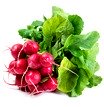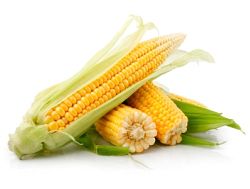A Vegetarian Diet —
Some Pitfalls to Avoid
As you pursue your vegetarian diet, you’ll encounter some fairly common (but not always recognized) pitfalls. Among these would be foods easy to “overdose” on: seeds and nuts, for one example, and/or starchy carbohydrates for another. You know, the bread and pasta products so many of us just love.

Sure, with no meat added
they're “vegetarian.” If you don’t pay attention, though, they can also
pad you out like a manatee! (Guess how I know this.) You can lose the
pounds, of course, but it’s terminally tedious to have to do so.
Other Pitfalls
Watch out, too, for some
deficiencies that can befall vegetarians and vegans if we're not paying attention: vitamins
B-12 and D, protein, iron, certain minerals, Omega-3 oils, iodine...
Although exhaustive descriptions of these and other possibilities fall
outside the scope of this page, here are a few biggies to get you
started.
Vitamin B-12
Because Vitamin B-12 hangs out mainly in meat, seafood, milk products, poultry, and eggs, you’ll need to find other reliable sources if you plan to eliminate dairy from your diet. (Maybe you don't, but just in case.) One such source would be supplements; another, fortified foods such as dry cereals.
Why worry about this deficiency? For one thing, because it can lead to anemia—your body needs Vitamin B-12 to make red blood cells. Long-term B-12 deficiency can also lead to permanent nerve or neurological damage. To say the least, B-12 deficiency issues are Most Definitely not something to laugh off. So be sure to get yours.
Apparently, a surprising number of people now fail to get enough of this vitamin—particularly vegans, since many people depend upon fortified milk for it. If that’s you, reasonable substitutes might be fortified soymilk or a multivitamin. A talk with your doctor and/or a nutritionist might be wise, as well.
Vitamin D

If you’re in direct sunlight a fair amount, you can possibly
meet your Vitamin D needs, but also watch out for over-exposure. No use
inviting wrinkles or skin cancer to the party, right?
Be aware, though,
that your sunscreen may be blocking some of the Vitamin D you’d
otherwise absorb. Your best bet (IMHO) is to have your Vitamin D levels
tested from time to time.
If these reveal deficiencies, ask your doctor
and/or nutritionist about appropriate remedies. Also worth noting is that,
as we age, some of us absorb less Vitamin D than we may think.
Iron
Although many vegetarian/vegan foods have lots of iron, if you’re
pregnant or still menstruating, you may want to check with a
nutritionist or doctor about taking a supplement. BTW: leafy greens and
certain kinds of beans are particularly high in iron, which can be
absorbed even better in the presence of Vitamin C. Click here for a list
of green and leafies…
Inhibitors include tea and coffee
(bummer!), certain spices, a particular substance in whole grains, and
the calcium in dairy products. “The reality is, however, that if you eat
a reasonable mix of foods, inhibitors and enhancers of iron absorption
offset each other…” (Suzanne Havala Hobbs, DrPH, Living Vegetarian for
Dummies.) But do stay alert, as complacency while on a vegetarian diet
can lead to places you may rather not go.
Omega 3 and DHA
Although many dietitians believe that vegetarians get lots of Omega-6
through the foods they eat, we generally tend to get fewer Omega-3s. For vegetarians, good sources of the latter are certain sea vegetables,
ground flaxseeds, walnuts, canola and walnut oils, and supplements made
from microalgae.
The above nutrients are but a few you’ll need to stay aware
of. Because others are important, as well, it really will pay to learn
as much as you can about vegetarian nutrition. Your health and energy
(not to mention your head of hair!) depend upon it. Plus, the information is readily available, so you just as well go for it, right?
Please understand that the material at this site is NOT medical advice, as I am neither doctor nor nutritionist. What I am is merely someone who's lived successfully on a vegetarian diet for many decades...and I transitioned from omnivore to vegetarian gradually. Do check with your doctor, though, if you're considering big changes to your own diet. Also, be sure to find a dependable source of Vitamin B12.
Living Vegetarian the Easy Way
Copyright 2010-2024. Lynda Edwards. All rights reserved.



